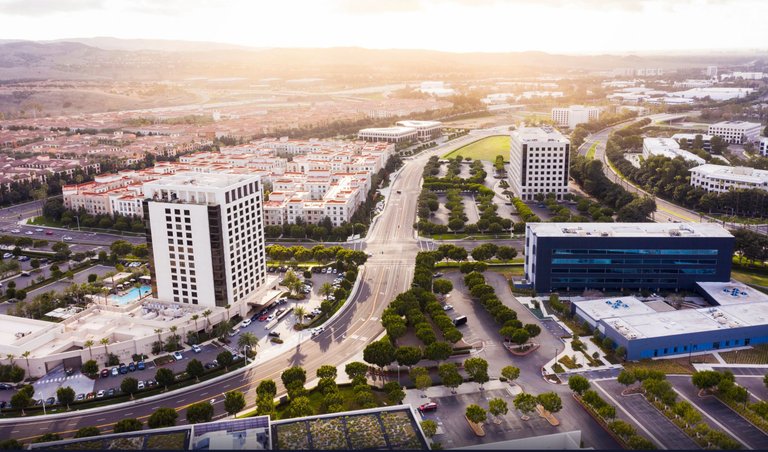When One Man Owns the City: Irvine and the Power of Private Urbanism
Imagine living in a city where nearly every apartment building, office complex, shopping center—and even the local newspaper—is owned by a single individual...
NB: While this might sound like a setting for a dystopian sci-fi movie, it's the reality in Irvine, California, where billionaire developer Donald Bren and his company, Irvine Co., have unparalleled control over the urban landscape.
Bren, now 92 and valued at an estimated $17.4 billion, has quietly built over several decades what others call the most successful planned city in America. The Irvine Company owns approximately 75% of the city's apartment complexes, most of its retail and commercial office space, and even publishes the local Irvine Standard newspaper. The city proper has over 314,000 residents, but in most ways, it belongs to one man....

A Success Story...?
At first glance, Irvine is a success story. For a long time it has been one of the safest cities in America, has excellent public schools, and houses many of the world's largest technology companies. Its streets are tidy, its infrastructure maintained, and its economy strong. These traits are not an accident: they are the result of Bren's tight control over planning, zoning, and even visual decisions, like what trees homeowners can plant or what kind of roof tiles they can use. One observer compared his rule to that of "a one-man homeowners' association."
And the downsides...?
While Irvine's master plan has been praised as efficient and well-ordered, it comes at a cost. Irvine is now the third-most expensive rental market in Southern California, and homeownership has dipped from 60% to 44%. The primary cause of this is sheer over-saturation of rental properties in the Irvine Co.'s ownership, which controls supply, pricing, and availability. And since one landlord controls it, there is no incentive to develop affordable housing or to diversify ownership.
The city newspaper is also owned by the largest landlord raises serious questions about editorial independence and public accountability. (But then again, it is only a city newspaper!)
Irvine seems to be a version of a broader tension at the center of urban development today. Private developers like Bren can offer clean, well-managed areas, but only at the expense of curtailing democratic engagement and increasing inequality.
Final thoughts...
As cities all over the world struggle with housing shortages, infrastructure collapse, and government failure, Irvine is both a model for the future and a cautionary tale. Its success is a testament to what's possible when long-term vision is coupled with deep pockets. But its failures remind us that democratic urbanism—messy, disputed, and inclusive—is still the way forward. A city for everyone can't be controlled by one....
Posted Using INLEO
One-man communism :)
https://www.reddit.com/r/usa/comments/1kp1vvb/when_one_man_owns_the_city_irvine_and_the_power/
This post has been shared on Reddit by @davideownzall through the HivePosh initiative.